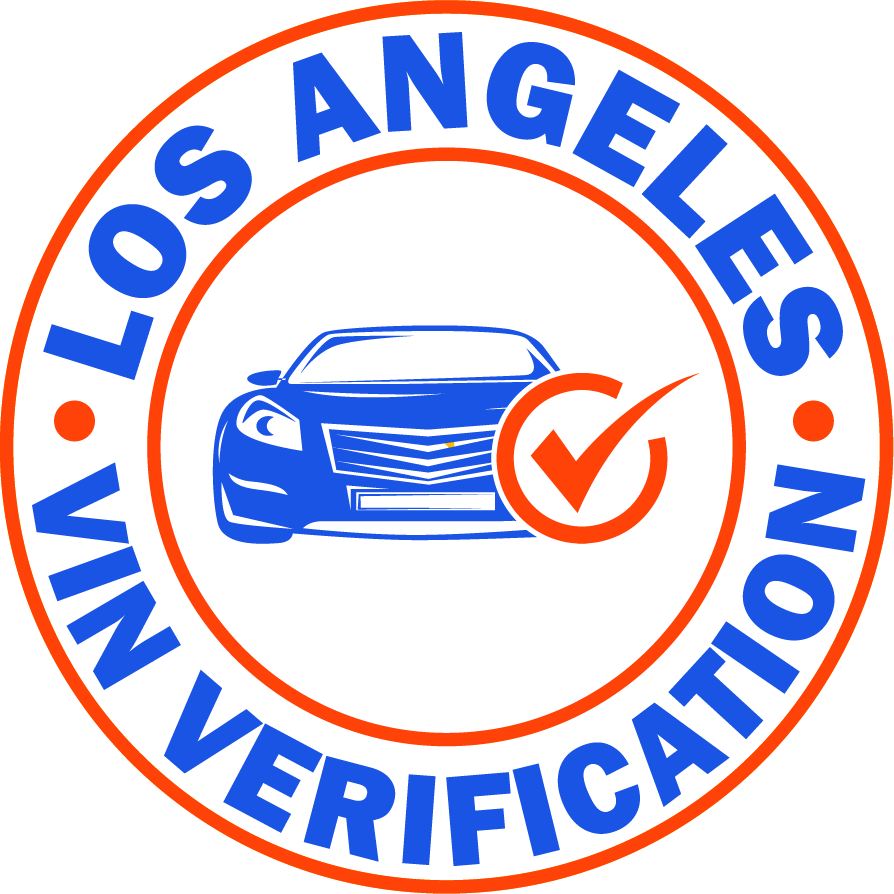In the meticulous process of VIN verification in Los Angeles, a single oversight can lead to significant hurdles in vehicle registration. From ensuring the accuracy of the VIN against official documents to recognizing common missteps such as unclear VINs or mismatched documentation, the stakes are high. These errors not only impede the registration process but may also affect the legal ownership of the vehicle. As we explore the nuances of each common mistake, it becomes evident how each detail plays a pivotal role in safeguarding against potential legal and administrative complications. What unfolds is a critical dialogue on the best practices that can streamline this essential task.
Overlooking VIN Clarity
Overlooking the clarity of a Vehicle Identification Number (VIN) can significantly hinder the accuracy of the verification process. When VIN clarity is compromised—whether through blurred numbers, dirt, or damage—the risk of misidentification increases. This misstep can lead to serious registration issues, challenging the very freedom to operate a vehicle legally and efficiently.
VINs are designed to be a unique identifier for vehicles, excluding confusing characters like I, O, and Q to ensure clarity and prevent errors. However, a damaged VIN or one that is difficult to read due to environmental factors can obstruct the verification process. This lack of clarity can result in erroneous cross-referencing with official documents such as the vehicle title and registration, potentially leading to legal complications.
Furthermore, hidden VINs, often located in multiple locations on a vehicle, require careful inspection to guarantee authenticity and completeness of records. If a VIN is obscured or altered, it can be challenging to ascertain true vehicle ownership, complicating the ability to freely transfer or sell the vehicle.
Ensuring VIN clarity is therefore essential, not only for compliance with legal standards but also for maintaining the liberty to manage one's vehicle assets without encumbrance.
Mismatching Documentation
Another common pitfall in VIN verification is mismatching documentation, where discrepancies between vehicle documents and the VIN can lead to significant procedural delays. When the VIN on a vehicle doesn't match the details on the vehicle title or registration papers, complications arise that can thwart the freedoms associated with vehicle ownership. This mismatch not only interrupts the verification process but can also escalate to additional inspections or outright denial of registration by the California DMV.
It is essential for vehicle owners in Los Angeles to ensure that all documentation aligns perfectly. Careful cross-referencing of the VIN plate on the vehicle with the registration and title documents is crucial. Errors, often as simple as typos or incorrect data entries, can lead to these mismatches. Alterations made to the VIN also pose serious challenges and can raise suspicions of illegal activities, further complicating the verification process.
To navigate this hurdle, immediate reporting of any discrepancies to the relevant authorities is advised. Addressing mismatches promptly can avert potential legal issues and facilitate a smoother, more efficient VIN verification process. Ensuring meticulous consistency in documentation not only supports legal compliance but also reinforces the integrity of the vehicle's registration process.
Ignoring VIN Length
Ignoring the precise length of a Vehicle Identification Number (VIN), which must consist of exactly 17 alphanumeric characters, often leads to significant complications in the verification process. This common mistake can ensnare many in the VIN verification system, where accuracy is paramount.
Each alphanumeric character within the VIN holds essential information about the vehicle's make, model, and year, among other details. Therefore, an incorrect VIN length can result in misidentification, directly impacting the registration process, insurance claims, and accurate documentation.
When the VIN length does not conform to the 17-character standard, it suggests either an accidental omission or the inclusion of superfluous characters. Transposed digits are also prevalent errors that compromise the integrity of data, making verification challenging. These errors are not just administrative hiccups; they can have real consequences, restricting your freedom to use and manage your vehicle with confidence.
Ensuring the VIN's accuracy from the outset avoids these pitfalls. It is essential to double-check each character for a successful VIN verification, thereby safeguarding the smooth progression of vehicle registration, insurance procedures, and potential resale.
Always verify the VIN length to maintain control over your automotive affairs, ensuring each step follows the path of precision and correctness.
Using Invalid Characters
Continuing to examine common VIN errors, the use of invalid characters in a VIN severely disrupts the verification process. A vehicle identification number (VIN) is essential in distinguishing one vehicle from another and plays a crucial role in the registration process. It must consist of exactly 17 alphanumeric characters, excluding the letters I, O, and Q to prevent misidentification with numbers.
When invalid characters are used, it can lead to the submission of an invalid VIN, which complicates not only the vehicle identification but also affects subsequent processes such as insurance and ownership verification. Ensuring the accuracy of these characters is paramount in maintaining the integrity of the vehicle's identification.
Common errors during VIN verification include the accidental inclusion of excluded characters, which could fundamentally alter the vehicle's registered details and legal standing. To avoid such pitfalls, it is critical to double-check the VIN against official documentation.
This step confirms that no invalid characters have been used and reinforces the accuracy and legality of the registration process. By adhering to these guidelines, one ensures the VIN reflects the true identity of the vehicle, safeguarding against potential legal or administrative complications.
Confusing Similar Characters
Character confusion further complicates VIN verification, particularly when similar-looking letters and numbers, like O and 0 or 5 and S, are involved. This complexity can significantly hinder the freedom to swiftly and accurately verify vehicle identification, leading to potential delays and bureaucratic entanglements.
Due to their visual similarity, these confusing characters can easily be misread or misentered, resulting in errors that complicate the verification process.
To ensure the accuracy of a VIN, it is essential to conduct a thorough visual comparison of the VIN plate against official documents. The VIN plate, often located on the dashboard or doorframe, can experience wear or become damaged, obscuring crucial characters. This deterioration can exacerbate the misidentification risk, especially with characters that closely resemble each other.
Accurate VIN verification is paramount not only for compliance with legal standards but also for maintaining the integrity of vehicle records and ownership. Misidentification due to similar characters can lead to incorrect vehicle data being recorded, which may affect everything from insurance to resale value.
Therefore, careful examination and cross-referencing with official documentation are vital steps in ensuring the VIN's validity and protecting the owner's rights and freedoms.
Skipping Professional Checks
While meticulous examination of VINs can mitigate errors related to character confusion, the decision to bypass professional verification can expose vehicle buyers to risks of undetected discrepancies.
Professional checks are crucial in ensuring vehicle authenticity and compliance with California regulations. Skilled verifiers adeptly identify hidden VINs, which are essential in confirming a vehicle's legitimate history and ownership. This precision aids in accurately matching VINs with title records, a fundamental aspect of the ownership transfer process.
Failing to engage in professional VIN verification services can lead to purchasing a vehicle with a tampered or altered VIN. Such oversights not only jeopardize the buyer's investment but also carry potential legal repercussions. In California, both the DMV and the CHP provide no-cost VIN verification services. Utilizing these resources can safeguard against future complications during vehicle registration or resale, ensuring a legal and transparent transaction.
Furthermore, engaging a professional verifier can significantly streamline the VIN verification process. This efficiency helps in avoiding unnecessary delays, thereby fostering a quicker and smoother ownership transition. Trusting professionals for VIN verification respects the principles of thoroughness and compliance, crucial for any vehicle transaction in Los Angeles.
Neglecting Online Tools
Neglecting online VIN check tools can lead to significant oversights, potentially resulting in the acquisition of a vehicle with undisclosed issues or a tainted history.
These online tools are pivotal in revealing crucial details about a vehicle's past, which are instrumental in making informed decisions. By using these resources, one can access reports that may uncover discrepancies such as mismatched titles or existing liens that could jeopardize the ownership.
Online tools also support the VIN verification process by providing insights into the vehicle's history, including previous accidents or ownership changes, which are essential for a comprehensive background check. This step is critical before proceeding to a physical inspection, ensuring that all the documentation is reviewed for consistency and accuracy.
These preliminary checks via online platforms help in the accurate entry of the VIN, thereby avoiding common errors that could lead to further complications.
In essence, these digital resources empower prospective vehicle buyers in Los Angeles with the freedom to access detailed information at their fingertips. Ignoring such tools can obscure hidden problems that might not be visible during a physical inspection, thus safeguarding against potential financial and legal issues in the future.
Forgetting Verification Timing
Another common pitfall in the VIN verification process is forgetting to consider the timing of the verification. Timely verification is paramount, especially when handling vehicles newly arrived in California. The essence of freedom in vehicle ownership includes avoiding unnecessary hindrances during the registration process. Hence, initiating the VIN verification promptly upon the vehicle's arrival ensures a smoother path toward securing your vehicle's legitimacy.
Many overlook that verifying the California VIN before any title transfer is crucial. This preemptive step is vital to confirm paperwork accuracy, ensuring that all details align correctly across documents. It's a fundamental practice to avert complications later, particularly with vehicles that might have a complex or unclear vehicle history.
To truly safeguard against common mistakes and ensure you're prepared, complete the VIN verification several days before your scheduled registration appointment. This foresight allows ample time to address any discrepancies and uphold the integrity of your documentation.
Misunderstanding VIN Importance
Despite its compact structure, the Vehicle Identification Number (VIN) serves as an indispensable tool for detailed vehicle identification and authentication. A common mistake during VIN verification in Los Angeles is the misunderstanding of its significance. The VIN is not just a series of random characters but a crucial element in the automotive sector, providing accurate identification, crucial for vehicle registration, fraud prevention, and maintaining a clear record of vehicle history tracking.
Many overlook the power of this 17-character code, which leads to severe implications, including the accidental purchase of stolen vehicles or vehicles involved in legal disputes. This misunderstanding can also affect automotive sector transparency, as the VIN ensures that every transaction, from sale to maintenance, is recorded against a unique vehicle, enhancing ownership verification.
Failure to appreciate the importance of VIN could result in cumbersome legal consequences due to discrepancies in vehicle records. It's essential for buyers, sellers, and owners to recognize the role of VIN verification in safeguarding their freedom and rights within the vehicular realm.
Overlooking Inspection Details
Overlooking critical inspection details during VIN verification can significantly impede the registration process in Los Angeles. The vehicle identification number (VIN) serves as a unique identifier for each vehicle, and any discrepancies in its documentation or physical labels can lead to serious registration complications. It is essential to verify that the VIN displayed on the vehicle aligns perfectly with the title's information. Any mismatch can flag issues in DMV records, delaying or even preventing registration.
Ensuring the accuracy of the year, make, and model of the vehicle during the inspection is also crucial. Accurate data supports the validation process against DMV records, ensuring that the vehicle matches government records. Additionally, it is important to check the US Federal Certification Label and emissions label. The absence or tampering of these labels can raise suspicions about the vehicle's compliance with safety and environmental standards.
Furthermore, never overlook the odometer reading. Discrepancies in mileage can suggest odometer tampering, potentially indicating fraud or a misrepresentation of the vehicle's history. Inspecting the number of wheels and axles also forms a critical part of the verification process, affecting its eligibility for registration. Each detail, meticulously checked, ensures freedom from future legal and registration issues.

